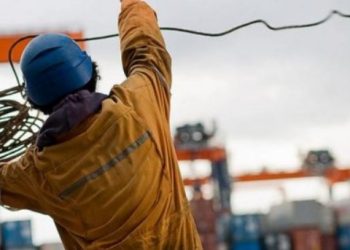As the global maritime industry navigates through an era of transformation, the wellbeing of seafarers remains a cornerstone for its sustainable future. The 2024 SEAFiT Crew Survey—the largest global study on crew welfare, sponsored by The American Club, Mintra & NorthStandard —offers a comprehensive overview of the challenges and opportunities in fostering a healthy, resilient, and satisfied workforce. With over 21,000 participants representing 1,614 ships, this year’s findings spotlight the priorities that demand immediate attention from maritime stakeholders.
Gone are the days when seafarer welfare was solely viewed through the lens of mental health. Today, the focus has broadened to encompass physical health, social connections, and overall happiness. The 2024 SEAFiT Index—a measure of overall wellness—stands at 72.5%, reflecting a slight decline from 74.2% in 2023. This drop underscores the urgent need for proactive measures across the industry.
The SEAFiT Crew Survey is an annual initiative by SAFETY4SEA, offering valuable insights into seafarer welfare through feedback from thousands of crew members worldwide. Conducted during Q2 and Q3 of 2024, the survey sought input from individuals both onboard and ashore, examining critical aspects of crew welfare such as wellness, communication, physical and mental health, happiness, and social connections.
A total of 21,312 seafarers serving aboard 1,614 ships participated in the survey. The majority of respondents hailed from Asia and Europe, with Filipinos comprising 70.1% of the sample. Other notable contributors included participants from Greece, Georgia, and Ukraine. Tanker ships formed the largest segment of vessels surveyed, accounting for 67% of the fleet.
Key Findings
- The SEAFiT Index for crew wellness stands at 72.5%, down from 74.2% in 2023.
- Satisfaction with mental wellbeing and physical health has declined, with the Physical Wellbeing Index showing the greatest drop.
- Top challenges include inadequate healthcare coverage for mental health (58.9%), insufficient guidance on coping strategies (59.9%), and a lack of information on mental health symptoms (58.1%).
- Reliable internet access was deemed vital by 91% of respondents for maintaining emotional and recreational connections with loved ones.
- Post-COVID, health concerns have become less prominent, with greater emphasis placed on recreational facilities, wages, workload, and career development.
- Filipino seafarers reported the highest satisfaction levels, while Italian participants were the least content.
- Tanker crews expressed higher satisfaction compared to those on general cargo ships.
 Addressing key areas of concern
Addressing key areas of concern
Participants identified several critical areas for improvement, emphasizing the need for immediate action:
- Workload and shore leave: Seafarers reported frustration with heavy workloads and restricted shore leave opportunities. Although post-pandemic restrictions have eased, the industry must adopt fair and flexible policies to address these challenges.
- Food and recreation: The quality and quantity of food and water onboard, as well as limited recreational facilities, remain key concerns. Enhanced gym equipment, nutritious meal options, and organized team activities such as karaoke nights and BBQs could significantly improve morale.
- Mental and physical health: Persistent barriers to mental health support, such as inadequate healthcare coverage and lack of coping resources, highlight the need for comprehensive mental health programs. Physical health also demands greater attention through better recreational opportunities and stress management resources.
- Career development and wages: Clear pathways for professional growth, improved wages, and performance bonuses are essential for retaining and motivating crew members.

The role of internet access
Internet connectivity emerged as the most pressing need for seafarers. While 91% of respondents emphasized its importance, many highlighted ongoing issues with cost, speed, and reliability. Access to affordable, high-speed internet is no longer a luxury—it is a necessity that significantly influences seafarers’ morale and wellbeing.
Keep in mind: The SAFETY4SEA Petition to improve onboard connectivity remains active, awaiting industry’s support to drive meaningful change.
A call to action
Today, we recognize the importance of a holistic approach to seafarer wellbeing. Beyond addressing mental health, we must focus on physical health, social interactions, and overall happiness. These findings provide a roadmap for the industry to build a happier and more resilient workforce, essential for the future of maritime operations
said Apo Belokas, Managing Editor of SAFETY4SEA.
The 2024 SEAFiT Crew Survey calls for industry-wide efforts to:
- Provide free or affordable high-speed internet.
- Offer comprehensive mental health training and resilience-building programs.
- Invest in healthier nutrition options and improved recreational facilities.
- Strengthen medical insurance for seafarers and their families.
- Ensure timely contract terminations and adequate shore leave provisions.

While progress has been made, the maritime industry must remain vigilant and proactive in addressing seafarer welfare. By prioritizing mental and physical health resources, enhancing communication infrastructure, and fostering a supportive work environment, the industry can improve the lives of its workforce and ensure safer and more efficient operations at sea,
….Belokas added.
As the maritime world evolves, prioritizing the human element is not just an ethical responsibility—it is a strategic necessity for a thriving future.
FIND OUT MORE ABOUT THE 2024 SEAFIT CREW SURVEY HERE































































